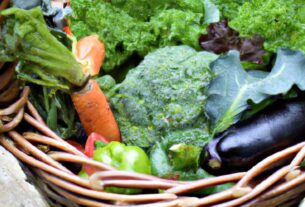Gardening is not just a hobby; it’s an opportunity to embrace the great outdoors, breathe in the fresh air, and savor the satisfaction of producing your own food. When it comes to garden vegetables, the benefits are plentiful, making them a prime choice for many garden enthusiasts. In this article, we’ll explore the advantages of growing your own garden vegetables, highlight popular choices, and offer tips for cultivating healthy plants.
Benefits of Growing Your Own Garden Vegetables
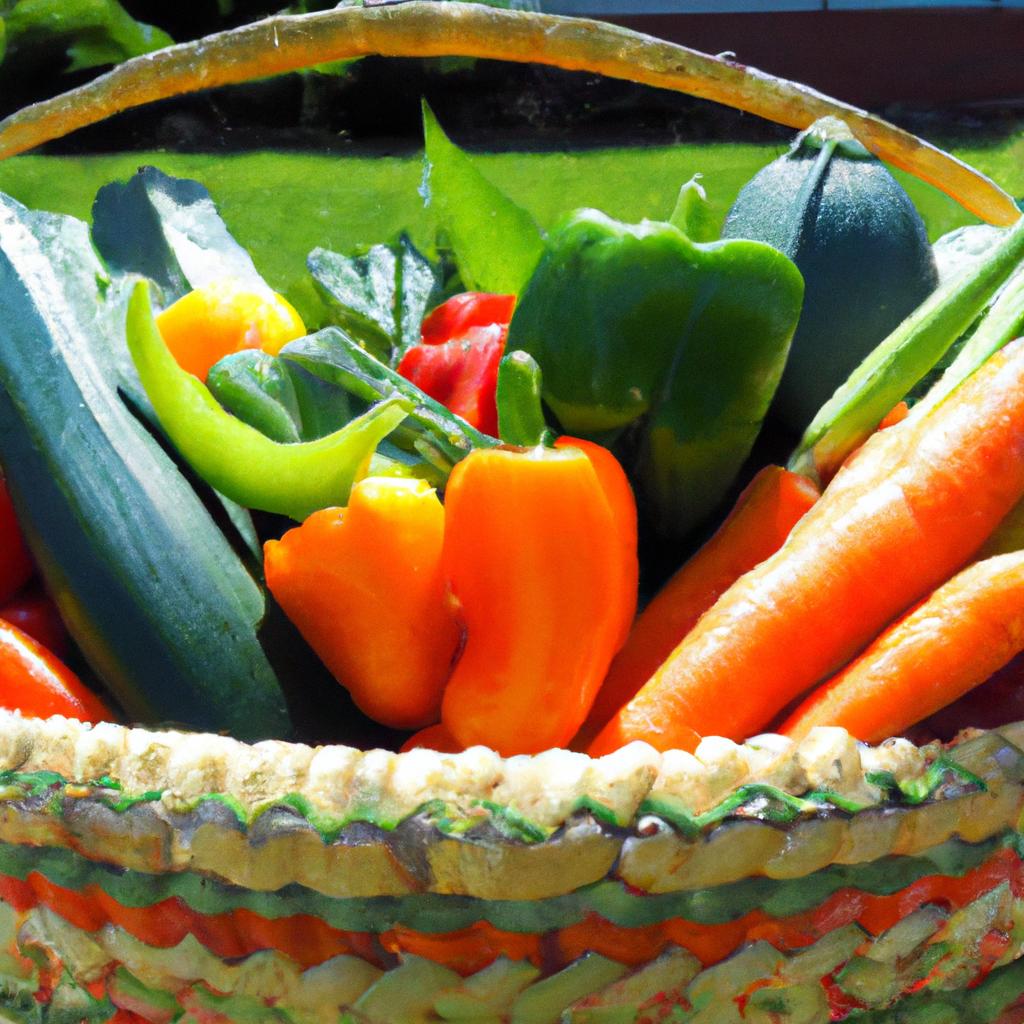
Health Benefits of Fresh Vegetables
Fresh vegetables offer a treasure trove of essential vitamins, minerals, and fiber that are vital for maintaining a healthy diet. What’s more, homegrown vegetables are free from chemical pesticides and fertilizers, reducing your exposure to harmful toxins.
Studies indicate that consuming fresh vegetables can significantly lower the risk of chronic diseases such as heart disease, cancer, and type 2 diabetes. They also contribute to weight management and overall well-being.
Financial Benefits of Growing Your Own Vegetables
One of the primary advantages of growing your own garden vegetables is the significant cost savings. Store-bought fresh vegetables can be quite expensive, with prices fluctuating based on the season. By cultivating your own, you can save money while enjoying a steady supply of fresh produce all year round.
Environmental Benefits of Growing Your Own Vegetables
Growing your own vegetables also positively impacts the environment. By reducing the need for transportation, storage, and packaging, homegrown vegetables significantly decrease carbon emissions and waste generation.
Furthermore, cultivating your own vegetables fosters biodiversity by creating habitats for beneficial insects and wildlife. It also reduces reliance on harmful pesticides and fertilizers, helping to preserve the delicate balance of our natural ecosystems.
Popular Garden Vegetables to Grow
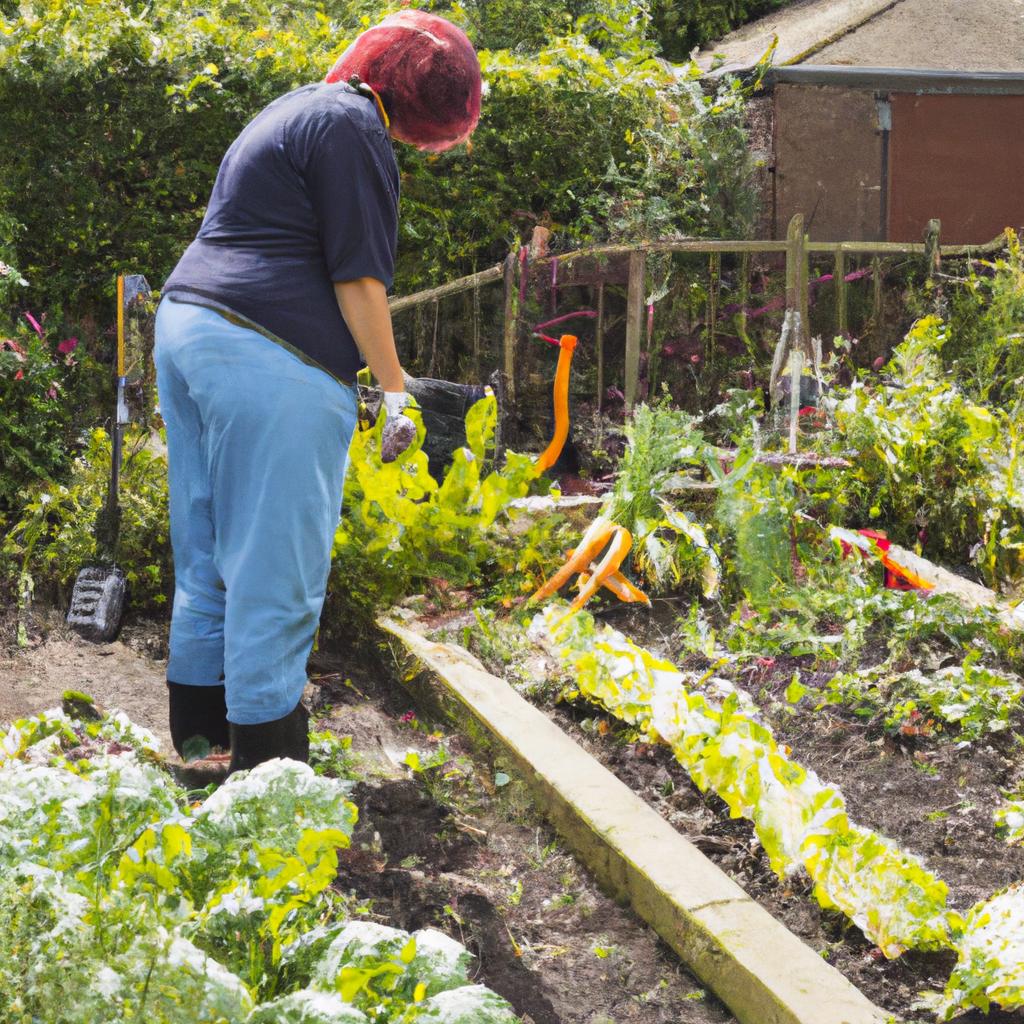
Tomatoes
Tomatoes reign supreme as one of the most popular garden vegetables, thanks to their versatility, ease of cultivation, and their incredible flavor. Rich in vitamins A and C, as well as lycopene, which is linked to a reduced risk of heart disease and cancer, tomatoes are an excellent addition to any garden.
Thriving in warm weather and requiring regular watering, tomatoes can be grown in containers or directly in the ground, making them ideal for gardens of all sizes.
Cucumbers
Cucumbers are another garden favorite, celebrated for their crisp texture and refreshing taste. With their high water content, cucumbers are not only a flavorful addition to meals but also an excellent source of hydration.
Cucumbers thrive in moist soil and ample sunlight. To save space, try growing them vertically, and enjoy an abundant harvest that’s perfect for pickling or adding to salads.
Peppers
Peppers come in various colors, sizes, and heat levels, making them a go-to choice for gardeners seeking diversity. Packed with vitamin C, peppers are known for their ability to aid digestion, boost the immune system, and reduce inflammation.
Warm weather and ample sunlight are crucial for pepper plants to thrive. Whether you grow them in containers or in the ground, peppers add flavor and a touch of heat to countless dishes.
Carrots
Carrots, a root vegetable, offer a combination of ease in cultivation and exceptional nutritional value. Bursting with antioxidants, vitamins, and minerals, carrots contribute to improved vision, reduced cancer risk, and healthier skin.
To grow carrots successfully, ensure well-drained soil and provide plenty of sunlight. Whether you have a small garden or prefer containers, carrots are an excellent choice for snacking or enhancing salads.
Lettuce
Lettuce, one of the simplest garden vegetables to grow, is perfect for those starting their gardening journey. With its abundance of vitamins A and K, lettuce promotes digestion, boosts the immune system, and reduces inflammation.
Thriving in cooler weather and requiring frequent watering, lettuce can be grown in containers or directly in the ground. Add this leafy green to salads or sandwiches for a fresh and nutritious touch.
Zucchini
Zucchini, a versatile summer squash, is not only easy to grow but also incredibly adaptable in the kitchen. With its abundance of vitamins and minerals, zucchini aids digestion, lowers cholesterol, and reduces inflammation.
Zucchini thrives in warm weather and requires plenty of sunlight. Whether you choose containers or the ground for cultivation, you’ll have an ample supply for stir-fries, salads, or even baking into bread.
Tips for Growing Healthy Garden Vegetables
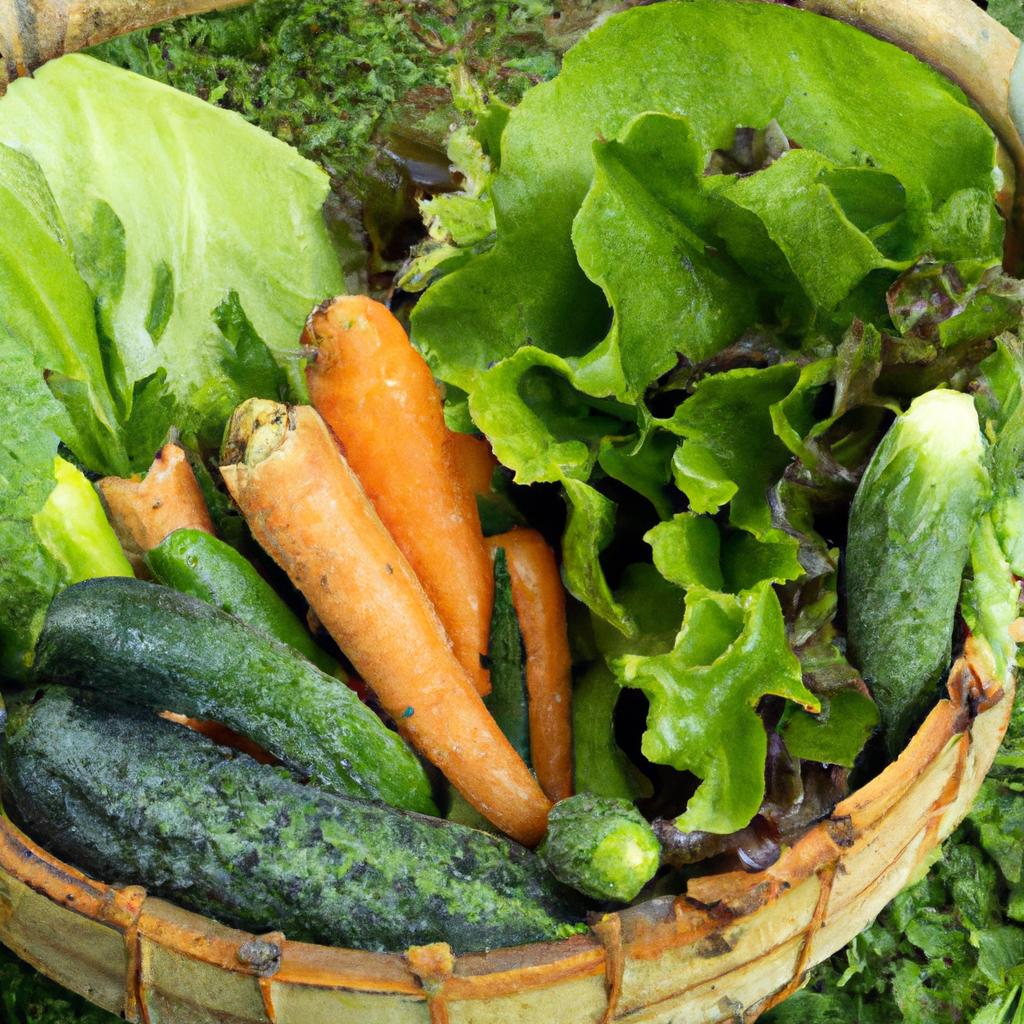
Soil Preparation
Healthy plants start with good soil. Test the pH level and nutrient content of your soil and amend it with organic matter like compost or manure to enhance drainage, improve structure, and increase nutrient availability.
Watering and Fertilizing
Proper watering and fertilizing are essential for the thriving of your plants. Deep watering encourages robust root growth, while balanced fertilizers or organic matter like compost or manure provide vital nutrients for healthy development.
Pest Control
Keeping pests at bay is crucial to safeguard your plants. Employ natural methods like companion planting, insecticidal soap, or neem oil to control pests such as aphids, spider mites, and caterpillars without resorting to harmful chemicals.
Harvesting
Timing the harvest of your vegetables is critical for optimal flavor and nutrient content. Consult seed packets or gardening guides for specific harvesting information. Use sharp, clean tools to prevent damage to the plant, and store your bounty in cool, dry conditions.
Creative Ways to Use Garden Vegetables
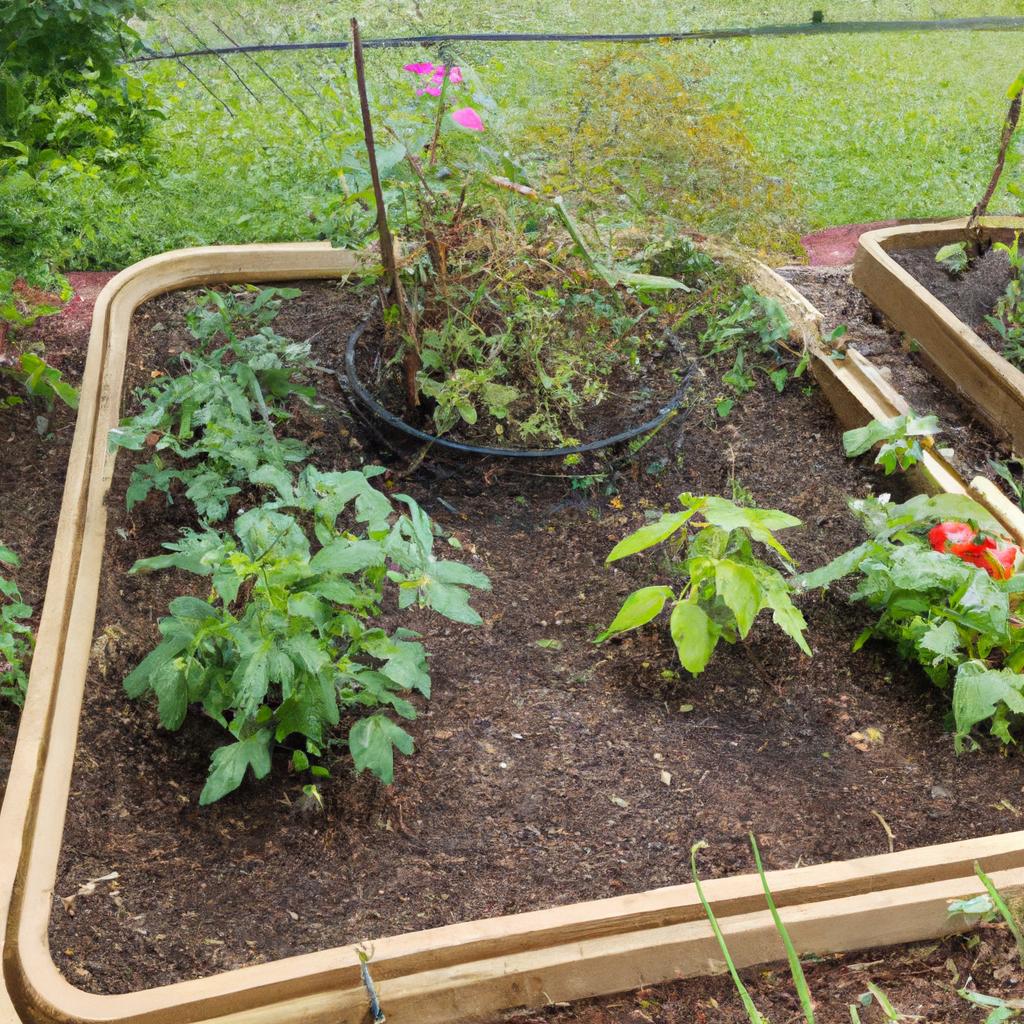
Once you’ve nurtured your garden vegetables with care, it’s time to explore creative avenues for using them in your culinary endeavors. Here are some delectable recipe ideas to get you started:
Fresh Garden Vegetable Salad
Turn your excess produce into a fresh garden vegetable salad. Simply chop your favorite vegetables, such as tomatoes, cucumbers, lettuce, and peppers, and combine them with a homemade vinaigrette. For added substance, grill some chicken or tofu as a protein-packed accompaniment.
Grilled Vegetable Skewers
Enhance the natural flavors of your garden vegetables by grilling them on skewers. Cut the vegetables into bite-sized pieces, brush them with olive oil, and season with salt, pepper, and herbs. Grill until tender and slightly charred, serving them as a savory side dish or alongside your favorite protein.
Preserving Techniques for Year-Round Enjoyment
If your garden delivers an abundance of vegetables, preserving them allows you to enjoy their goodness throughout the year. Consider these two popular preserving methods:
Canning
Canning is an age-old technique that involves heating vegetables in jars to eliminate bacteria and sealing them airtight. Canned vegetables can last up to a year in cool, dark storage. They’re a perfect addition to soups, stews, or as a versatile side dish.
Freezing
Freezing is another way to preserve your vegetables. Blanch them in boiling water to halt the enzymes responsible for degradation, then transfer them quickly to ice water to stop the cooking process. Drain and freeze in airtight bags or containers. Frozen vegetables can last for up to six months, ready to star in stir-fries, casseroles, or as simple, satisfying side dishes.
Conclusion
In conclusion, growing your own garden vegetables offers a host of benefits, from improved health and financial savings to a positive impact on the environment. By cultivating your own vegetables, you can indulge in a steady supply of fresh produce year-round, reduce your carbon footprint, and foster biodiversity.
Popular garden vegetables like tomatoes, cucumbers, peppers, carrots, lettuce, and zucchini deliver a multitude of flavors and nutritional benefits. With a little guidance and care, you can enjoy a fruitful harvest of your own.
What’s more, with a dash of creativity, your garden vegetables can be transformed into a myriad of enticing recipes, from crisp salads to smoky grilled skewers. By mastering preserving techniques like canning and freezing, you can savor the flavors of your garden all year long. So, put on your gardening gloves and embark on the journey of cultivating your own vegetable garden, reaping the rewards of fresh, homegrown produce.
For more information on gardening and gardening supplies, visit TooLacks.
